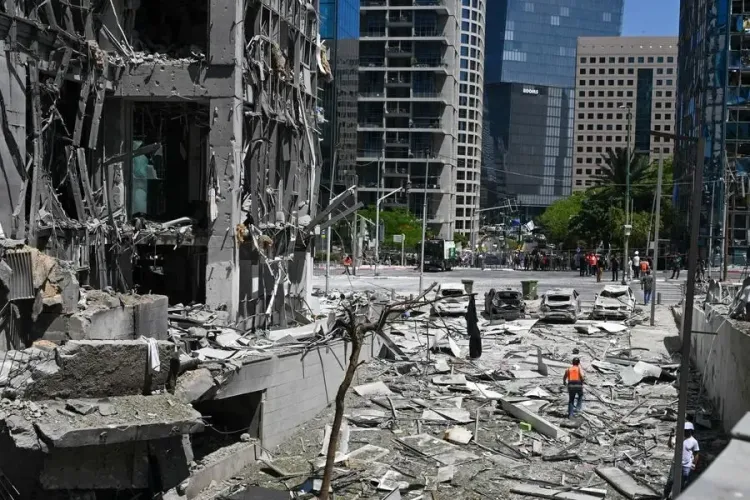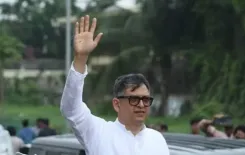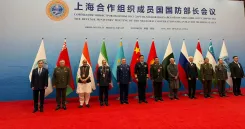Will Israel's Mossad Continue Operations in Iran?

Synopsis
Key Takeaways
- Mossad will continue its operations in Iran despite the ceasefire.
- The agency is focused on monitoring Iranian nuclear projects.
- Recent US airstrikes have significantly impacted Iran's nuclear infrastructure.
- Israel claims to have mitigated the existential threat from Iran.
- Iran acknowledges damage but disputes the extent of destruction.
Tel Aviv, June 26 (NationPress) David Barnea, the head of Israel's Mossad intelligence agency, confirmed that the organization will persist in its operations within Iran, according to a video made public by Mossad.
The footage features Barnea speaking to operatives at the agency's operational headquarters on Tuesday, just hours after a ceasefire was established between Israel and Iran.
"We will maintain vigilant surveillance over all of Iran's initiatives that we are already intimately familiar with. We will be present as we have been thus far," he stated on Wednesday.
He emphasized that through "precise intelligence, advanced technology, and extraordinary operational capabilities, we aided the Air Force in undermining the Iranian nuclear program, achieving aerial superiority over Iran, and decreasing the missile threat, thereby safeguarding the security of Israeli citizens."
In the video, Barnea also expressed gratitude to the US Central Intelligence Agency for their collaborative efforts.
Earlier Wednesday, the Israel Atomic Energy Commission (IAEC) announced that recent US airstrikes on Iran's Fordow nuclear facility destroyed critical infrastructure, making the uranium enrichment plant inoperable.
A statement from Israeli Prime Minister Benjamin Netanyahu's Office indicated that the US strikes, combined with Israeli attacks on various aspects of Iran's nuclear program, have significantly delayed Iran's capacity to develop nuclear weapons by several years.
"This achievement can persist indefinitely as long as Iran lacks access to nuclear materials," the statement read.
At a cabinet meeting earlier Wednesday, Netanyahu proclaimed success in the conflict against Iran, asserting that Israel has eliminated an immediate existential threat, according to reports from Xinhua news agency.
Israel has justified its attacks as essential to prevent Iran from obtaining nuclear weapons, a claim that Iran refutes.
On the same day, Iranian Foreign Ministry spokesperson Esmail Baghaei acknowledged that the assaults had inflicted significant damage. "Our nuclear facilities have sustained severe damage, that's certain," he stated during an interview with Al Jazeera.
However, US media sources, citing a classified intelligence assessment, reported that the impact on Iran's nuclear infrastructure may only postpone its program by a few months, contradicting US President Donald Trump's assertion that the facilities were "entirely and utterly destroyed."
On June 13, Israel executed extensive airstrikes on various locations in Iran, targeting nuclear and military sites, resulting in the deaths of several high-ranking commanders, nuclear scientists, and numerous civilians.
In retaliation, Iran launched multiple waves of missile and drone strikes on Israel, causing casualties and significant destruction.
The ceasefire between the two nations was declared on Tuesday.








